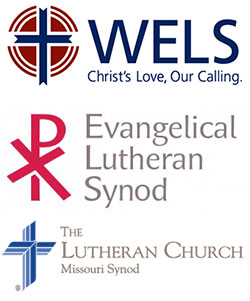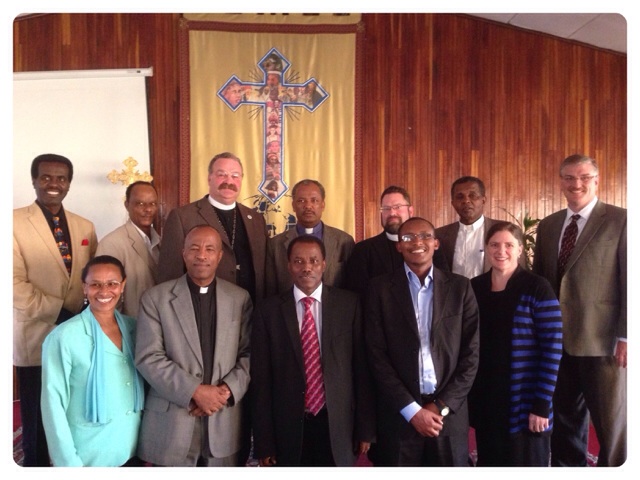
USA – The Lutheran Church—Missouri Synod (LCMS), the Wisconsin Evangelical Lutheran Synod (WELS), and the Evangelical Lutheran Synod (ELS) have released a report noting significant doctrinal agreement between the three synods, following three years of informal dialogue.
Following a fourth meeting held December 2, 2015, leaders of the three synods agreed to the publication of A Report on the Meetings of ELS, LCMS, and WELS Leaders 2012-2015. Among the representatives present for the event were LCMS President Matthew C. Harrison, WELS President Mark Schroeder, and ELS President John A. Moldstad.
Primary among the contents of the report is an assessment of the doctrinal agreement already shared by the three synods. “We agree that the Bible is the inspired, inerrant Word of God and the only source of authority for doctrine and practice,” the report notes. “We agree that the chief message of the Bible is justification by grace through faith in the merits of Jesus Christ, and that the entire Bible is Christ-centered. All of us also confess without reservation (quia) that the Lutheran Confessions are a correct exposition of the Holy Scriptures.”
The LCMS previously enjoyed fellowship together with the ELS and the WELS until 1955 and 1961, the document notes, before breaking fellowship as a result of doctrinal controversies in the LCMS that peaked in the 1970s. Today, the three synods share such a level of doctrinal agreement that there is a strong desire for further discussion “with the hope that we may be able to come to full agreement under the guidance and blessing of the Holy Spirit.” They note, however, that a number of issues still need to be resolved, writing, “All of us are convinced that church fellowship requires complete agreement in doctrine.”
“It has been a joy to meet with and talk with faithful Lutherans from the WELS and ELS,” said Rev. Dr. Albert B. Collver III, Director of LCMS Church Relations. “We pray that the Lord would continue to bless this endeavor and, Deo volente [God willing], grant a restoration of fellowship between the three synods at some point in the future.”
Read the full report here.
The Lutheran Church—Missouri Synod is a member church of the International Lutheran Council and has approximately 2.1 million members. The Wisconsin Evangelical Lutheran Synod (approximately 400 thousand members) and the Evangelical Lutheran Synod (approximately 20 thousand members) are American churches in full-fellowship with each other. WELS and ELS are member churches of the Confessional Evangelical Lutheran Conference.
———————

